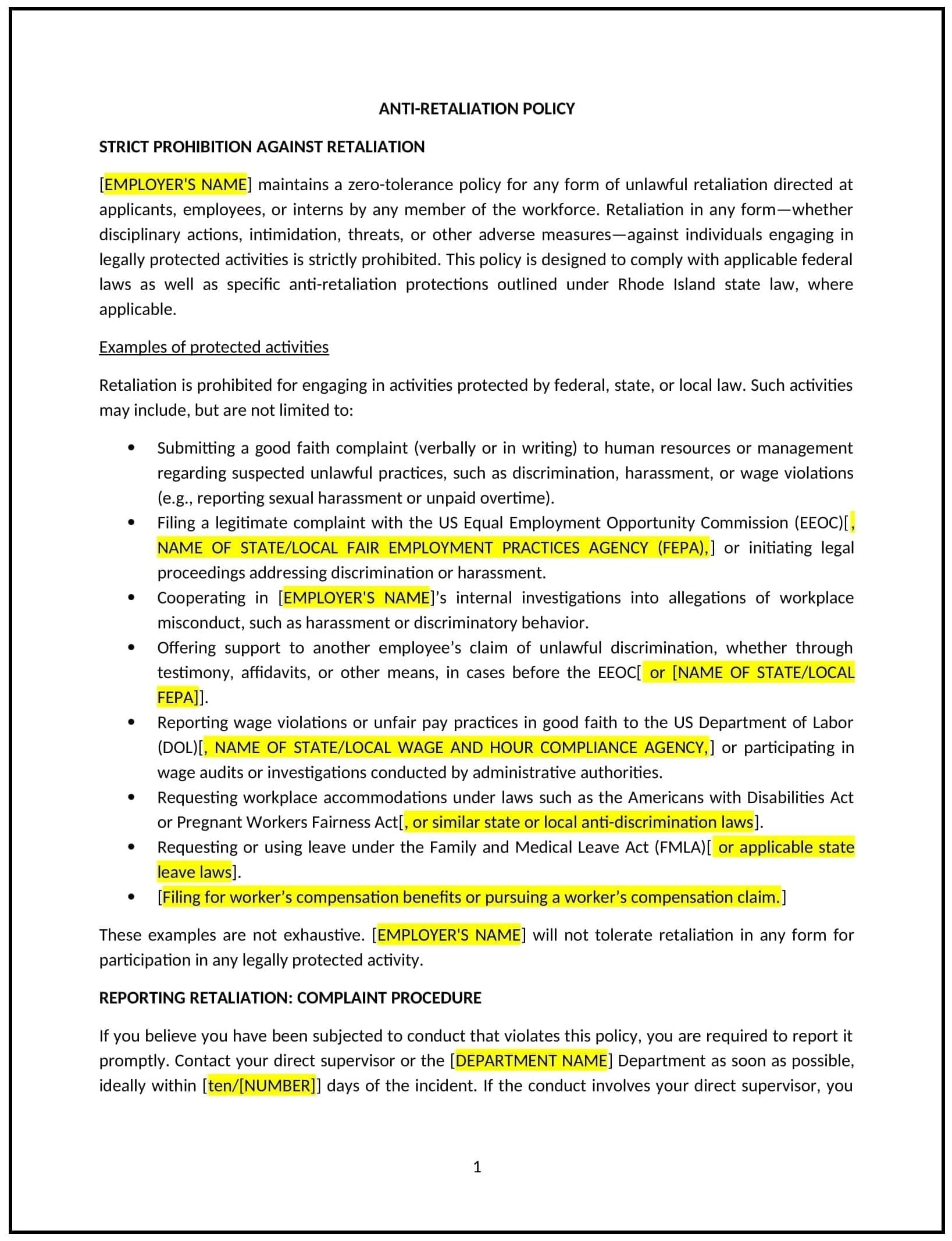Anti-retaliation policy (Rhode Island): Free template
Got contracts to review? While you're here for policies, let Cobrief make contract review effortless—start your free review now.

Customize this template for free
Anti-retaliation policy (Rhode Island)
This anti-retaliation policy is designed to help Rhode Island businesses establish guidelines for protecting employees who report misconduct, such as harassment, discrimination, or safety violations. It outlines procedures for preventing retaliation, addressing complaints, and fostering a culture of accountability and transparency.
By adopting this policy, businesses can encourage employees to report concerns without fear of retaliation, reduce legal risks, and align with general best practices for workplace ethics.
How to use this anti-retaliation policy (Rhode Island)
- Define retaliation: Explain what constitutes retaliation, such as demotion, termination, or other adverse actions against employees who report misconduct.
- Establish reporting procedures: Provide steps for employees to report retaliation, including multiple reporting channels and confidentiality protections.
- Address investigation processes: Outline how retaliation complaints will be investigated, including timelines and impartiality.
- Set consequences: Specify the consequences for violating the policy, such as disciplinary action or termination.
- Train employees: Educate staff on recognizing and preventing retaliation and their responsibilities under the policy.
- Review and update: Assess the policy annually to ensure it aligns with evolving business needs and legal standards.
Benefits of using this anti-retaliation policy (Rhode Island)
This policy offers several advantages for Rhode Island businesses:
- Encourages reporting: Ensures employees feel safe reporting misconduct without fear of retaliation.
- Reduces legal risks: Minimizes the potential for lawsuits or penalties related to retaliation.
- Aligns with best practices: Provides a structured approach to managing and preventing retaliation.
- Builds trust: Demonstrates a commitment to accountability, transparency, and employee well-being.
- Enhances workplace culture: Creates an environment where employees feel empowered to speak up about concerns.
Tips for using this anti-retaliation policy (Rhode Island)
- Communicate the policy: Share the policy with employees and include it in the employee handbook.
- Provide training: Educate staff on recognizing and preventing retaliation and their responsibilities under the policy.
- Monitor adherence: Regularly review workplace behavior and incident reports to ensure compliance with the policy.
- Address issues promptly: Take corrective action if retaliation is reported or identified.
- Update regularly: Assess the policy annually to ensure it aligns with evolving business needs and legal standards.